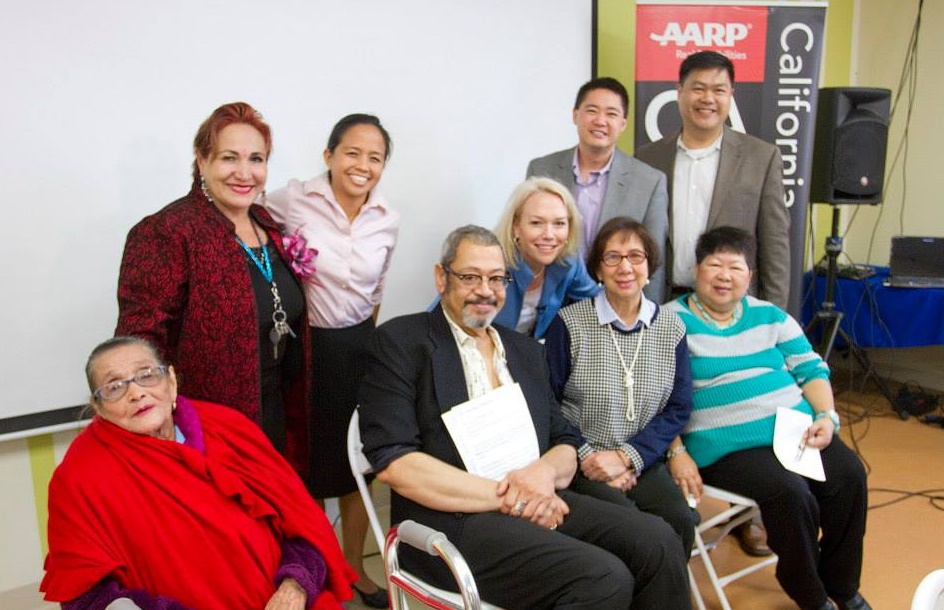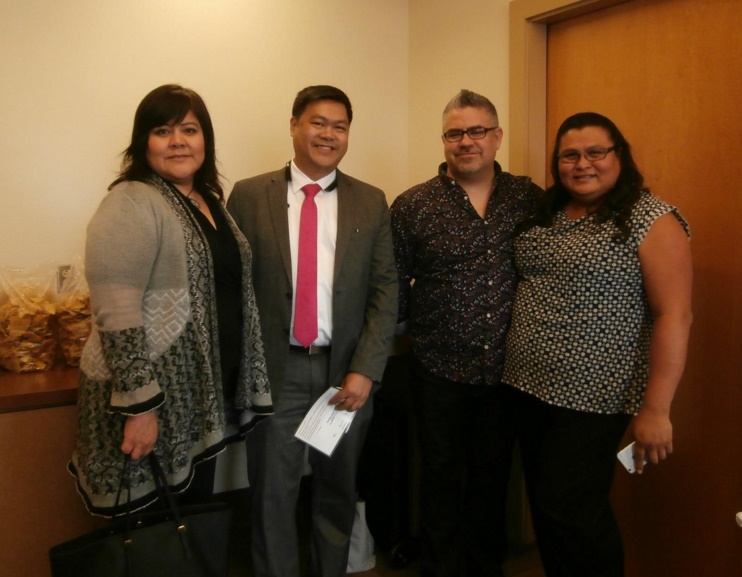Growing up in an immigrant household, I was raised to respect my elders. Their needs were to be looked after, and their wisdom was to not to be questioned. Often, that came into conflict in our suburban New Jersey community, where American cultural values of exceptionalism and individualism, perhaps subconsciously, told me that my upbringing in the States made me more of an authority on “how things worked” than my immigrant parents, who couldn’t possibly understand what I was going through in a world so different from their own. As I myself have grown and played a small role in helping raise my twin brother’s children, I am more appreciative of the challenges immigrants have overcome and the value of the wisdom our elders bring.
As 2015 comes to an end and I wrap up my first full year with the Diverse Elders Coalition, I have found myself reflecting on how my personal values and conceptions about aging are informed not only by the communities in which I move, but also by what’s at stake in the aging policy discussions I now engage. Two major factors that motivate my work with the DEC are 1) the uniquely multi-cultural and multi-sectoral space we build that brings together communities of color, American Indian/Alaska Natives, and LGBT communities to advocate for elders; and 2) the importance this advocacy voice holds at this particular moment as the “Browning of America” intersects with the “Graying of America.”
The Diverse Elders Coalition’s work this year took advantage of key opportunities to bring our member organizations’ constituencies to the fore. The 2015 White House Conference on Aging was perhaps the biggest platform. The May 7th Los Angeles Diverse Elders Town Hall was a particularly powerful example of our work, where a forum of one hundred elders and advocates, with translations happening in Spanish, Khmer, and Tagalog, brought direct feedback to WHCOA Executive Director Nora Super.

The White House Conference on Aging’s Regional Forum in Seattle was my first opportunity to meet Dr. Wes Lum, the new President and CEO of the National Asian Pacific Center on Aging (NAPCA). Seattle is one of my favorite cities to visit, and meeting him as he starts his tenure at a White House event hosted by a long-time friend and colleague Diane Narasaki at Asian Counseling and Referral Services (ACRS) was especially meaningful.
2015 marked the first time I officially visited an American Indian reservation as I was welcomed to the Pueblo of Isleta by the National Indian Council on Aging in New Mexico. Being in Indian Country was a reminder of the unique needs and challenges American Indian/Alaska Natives face, particularly as they age. NICOA was a gracious host, and we were able to attend an event marking National Native HIV/AIDS Awareness Day at the University of New Mexico. The powerful panel of Native people living with HIV and AIDS informs my perspective of the epidemic, and the HIV infographic we went on to publish this Fall.

This fall also marked the annual Capitol Hill Briefing for the National Hispanic Council on Aging. Being in the room and witnessing members of Congress speak directly to the needs of Hispanic elders that were in the room to visit with Congressional offices, I was able to witness the simple truth that for these constituents, their story is their most powerful political tool.
The Southeast Asia Resource Action Center’s work with immigrants and refugees expertly leverages the stories from their communities here in Washington, DC. I got to see this as a speaker at their annual Leadership In Action Training, and as a great birthday present to attend their October 7th Congressional Panel, “A Nation of Immigrants: Commemorating the 1965 Immigration and Nationality Act and its Legacy in Re-defining American.” Their voice continues to center refugees in immigration policy debates and has particular importance this year as the country grapples with its policy towards Syrian refugees even as it marks the 40th anniversary of refugee migration from Southeast Asia.
Services and Advocacy for GLBT Elders (SAGE), as an organization that not only does policy advocacy, but also maintains a vibrant network of direct service programs and support services for LGBT elders in New York and across the country, has a particularly unique perspective on bringing its constituencies’ voices into the aging arena. Seeing their work firsthand visiting their SAGE Center Midtown offices, and interacting with the participants of their Elder Institute at the annual Creating Change Conference for LGBT advocates, has been an exercise in seeing my own future as a gay man leaning into his 40s. If their fabulousness is any indication, the future is bright.
Our December issue of the DEC E-Newsletter, Common Threads, highlights our coalition’s work as well. As we bring 2015 to a close, I’m grateful for our team, including the member organizations, their staff, and our own DEC Communications and Logistics Associate Jenna McDavid and the SAGE Chief of Staff Patrick Aitcheson. We head into 2016 with a great team motivated to bring the wisdom of the diverse elders we serve to the next level and create more powerful moments to improve their lives and those of their families and their communities.
The opinions expressed in this article are those of the author and do not necessarily reflect those of the Diverse Elders Coalition.

